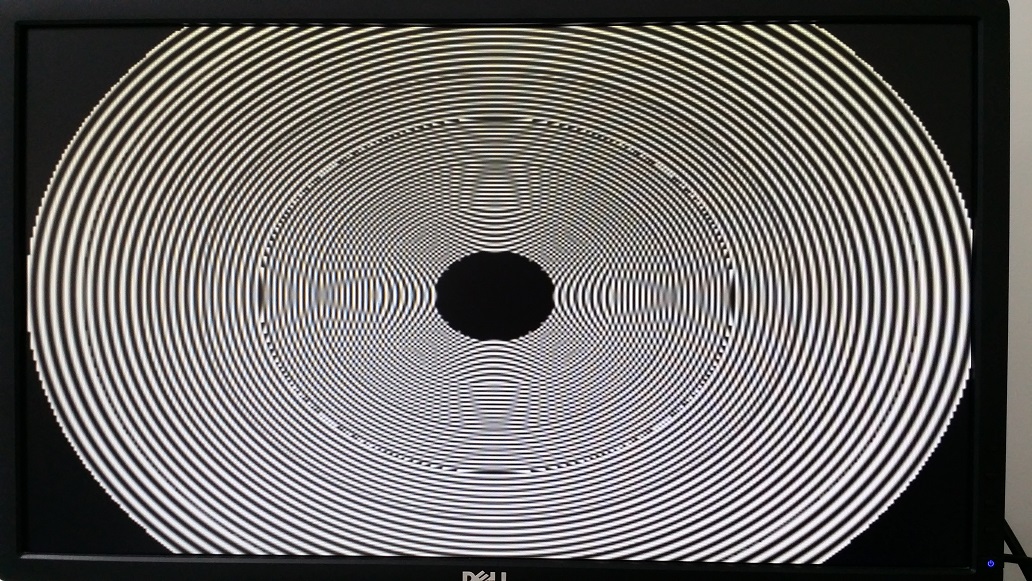DART-MX8M GSTREAMER
Introduction to GStreamer
GStreamer is a powerful pipeline-based multimedia framework.
It allows programmers to create a variety of media-handling components, including simple audio playback, audio and video playback, recording, streaming and editing.
This is not a GStreamer reference manual but an overview for using it on the Variscite i.MX8 products.
This release uses the gstreamer-imx set of GStreamer 1.0 plugins for Freescale's i.MX platform, which make use of the i.MX multimedia capabilities.
Major GStreamer commands
There are two major commands:
gst-inspect - allows you to to get documentation on available elements and detailed information on a specific element.
gst-launch - allows you to create and execute GStreamer pipelines.
gst-inspect
Lists all available elements:
$ gst-inspect-1.0
Lists all available sink elements:
$ gst-inspect-1.0 | grep sink
For example:
root@imx8m-var-dart:~# gst-inspect-1.0 | grep sink alsa: alsasink: Audio sink (ALSA) waylandsink: waylandsink: wayland video sink shm: shmsink: Shared Memory Sink decklink: decklinkaudiosink: Decklink Audio Sink decklink: decklinkvideosink: Decklink Video Sink ximagesink: ximagesink: Video sink soup: souphttpclientsink: HTTP client sink autodetect: autovideosink: Auto video sink autodetect: autoaudiosink: Auto audio sink gdkpixbuf: gdkpixbufsink: GdkPixbuf sink playback: playsink: Player Sink video4linux2: v4l2sink: Video (video4linux2) Sink fbdevsink: fbdevsink: fbdev video sink tcp: tcpclientsink: TCP client sink tcp: tcpserversink: TCP server sink ...
Detailed help information on a specific element:
$ gst-inspect-1.0 kmssink
For example:
root@imx8m-var-dart:~# gst-inspect-1.0 kmssink
Factory Details:
Rank secondary (128)
Long-name KMS video sink
Klass Sink/Video
Description Video sink using the Linux kernel mode setting API
Author Víctor Jáquez <vjaquez@igalia.com>
Plugin Details:
Name kms
Description Video sink using the Linux kernel mode setting API
Filename /usr/lib/gstreamer-1.0/libgstkms.so
Version 1.12.2
License LGPL
Source module gst-plugins-bad
Source release date 2017-07-14
Binary package GStreamer Bad Plug-ins source release
Origin URL Unknown package origin
GObject
+----GInitiallyUnowned
+----GstObject
+----GstElement
+----GstBaseSink
+----GstVideoSink
+----GstKMSSink
Implemented Interfaces:
GstVideoOverlay
Pad Templates:
SINK template: 'sink'
Availability: Always
Capabilities:
video/x-raw
format: { (string)BGRA, (string)BGRx, (string)RGBA, (string)RGBx, (string)UYVY, (string)YUY2, (string)YVYU, (string)I420, (string)YV12, (string)Y42B, (string)NV12, (string)NV12_10LE, (stri
ng)NV21, (string)NV16 }
width: [ 1, 2147483647 ]
height: [ 1, 2147483647 ]
framerate: [ 0/1, 2147483647/1 ]
Element Flags:
no flags set
Element Implementation:
Has change_state() function: gst_kms_sink_change_state
Element has no clocking capabilities.
Element has no URI handling capabilities.
Pads:
SINK: 'sink'
Pad Template: 'sink'
Element Properties:
name : The name of the object
flags: readable, writable
String. Default: "kmssink0"
parent : The parent of the object
flags: readable, writable
Object of type "GstObject"
sync : Sync on the clock
flags: readable, writable
Boolean. Default: true
max-lateness : Maximum number of nanoseconds that a buffer can be late before it is dropped (-1 unlimited)
flags: readable, writable
Integer64. Range: -1 - 9223372036854775807 Default: 20000000
qos : Generate Quality-of-Service events upstream
flags: readable, writable
Boolean. Default: true
async : Go asynchronously to PAUSED
flags: readable, writable
Boolean. Default: true
ts-offset : Timestamp offset in nanoseconds
flags: readable, writable
Integer64. Range: -9223372036854775808 - 9223372036854775807 Default: 0
enable-last-sample : Enable the last-sample property
flags: readable, writable
Boolean. Default: true
last-sample : The last sample received in the sink
flags: readable
Boxed pointer of type "GstSample"
blocksize : Size in bytes to pull per buffer (0 = default)
flags: readable, writable
Unsigned Integer. Range: 0 - 4294967295 Default: 4096
render-delay : Additional render delay of the sink in nanoseconds
flags: readable, writable
Unsigned Integer64. Range: 0 - 18446744073709551615 Default: 0
throttle-time : The time to keep between rendered buffers (0 = disabled)
flags: readable, writable
Unsigned Integer64. Range: 0 - 18446744073709551615 Default: 0
max-bitrate : The maximum bits per second to render (0 = disabled)
flags: readable, writable
Unsigned Integer64. Range: 0 - 18446744073709551615 Default: 0
show-preroll-frame : Whether to render video frames during preroll
flags: readable, writable
Boolean. Default: true
driver-name : DRM device driver name
flags: readable, writable
String. Default: null
connector-id : DRM connector id
flags: readable, writable
Integer. Range: -1 - 2147483647 Default: -1
plane-id : DRM plane id
flags: readable, writable
Integer. Range: -1 - 2147483647 Default: -1
force-modesetting : When enabled, the sink try to configure the display mode
flags: readable, writable
Boolean. Default: false
global-alpha : global alpha
flags: readable, writable
Integer. Range: 0 - 255 Default: 0
force-hantrotile : When enabled, the sink propose hantro tile modifier to VPU
flags: readable, writable
Boolean. Default: false
gst-launch
For Example launch the camera and display on the monitor:
$ gst-launch-1.0 -v videotestsrc ! imxv4l2sink
i.MX6 major elements
| Prefix |
Element Name |
description |
|---|---|---|
| imxaudio | imxmp3audioenc | imx mp3 audio encoder |
| imxg2d | imxg2dvideosink | IMX G2D video sink (blitter-based, zerocopy) |
| imxipu | imxipuvideosink | IMX IPU video sink (blitter-based, zerocopy) |
| imxpxp | imxpxpvideosink | IMX PxP video sink (blitter-based, zerocopy) |
| imxeglvivsink | imxeglvivsink | IMX EGL video sink (zerocopy) |
| imxv4l2videosrc | imxv4l2videosrc | IMX V4L2 CSI Video Source (zerocopy) |
| imxvpu | imxvpudec | IMX VPU video decoder (zerocopy) |
| imxvpu | imxvpuenc_h263 | VPU-based h.263 video encoder (zerocopy) |
| imxvpu | imxvpuenc_h264 | VPU-based H264 video encoder (zerocopy) |
| imxvpu | imxvpuenc_h264 | VPU-based MPEG video encoder (zerocopy) |
| imxvpu | imxvpuenc_jpeg | VPU-based JPEG video encoder (zerocopy) |
| imxipu | imxipuvideotransform | IMX IPU video transform |
| imxpxp | imxpxpvideotransform | IMX PXP video transform |
| imxg2d | imxg2dvideotransform | IMX G2D video transform |
| imxipu | imxipucompositor | IMX IPU video compositor |
| imxg2d | imxg2dcompositor | IMX G2D video compositor |
Test Pattern Stream
Test pattern allows you to display pre build image/video patterns on the display. It is very useful when you don't have a camera but still want to test GStreamer.
Default test pattern:
$ export DISPLAY=:0
$ gst-launch-1.0 videotestsrc ! borderless-window="true" force-aspect-ratio="false"

Test pattern with specific paramters on the input element
$ gst-launch-1.0 videotestsrc pattern=circular ! imxeglvivsink borderless-window="true" force-aspect-ratio="false"

Test pattern with specific paramters on the output element
$ gst-launch-1.0 videotestsrc ! imxeglvivsink window-width="1280" window-height="720" borderless-window="true" force-aspect-ratio="false"

Test pattern with specific paramters on the input and output elements
$ gst-launch-1.0 videotestsrc pattern=circular ! imxeglvivsink window-width="1280" window-height="720" borderless-window="true" force-aspect-ratio="false"
Camera Loopback
Stream video from a camera to a display
Command:
$ export DISPLAY=:0
$ gst-launch-1.0 imxv4l2videosrc device=/dev/video0 imx-capture-mode=5 fps-n=30 ! imxeglvivsink window-width="1920" window-height="1080" borderless-window="true" force-aspect-ratio="false"
More optimized blitter-base imxg2dvideosink and imxipuvideosink sinks will properly work with fslc_framebuffer DISTRO only
Get the camera support format and resolution using gst-inspect-1.0 imxv4l2videosrc.
imx-capture-mode for ov5640 example resolutions:
ov5640_mode_VGA_640_480 = 0, ov5640_mode_QVGA_320_240 = 1, ov5640_mode_NTSC_720_480 = 2, ov5640_mode_PAL_720_576 = 3, ov5640_mode_720P_1280_720 = 4, ov5640_mode_1080P_1920_1080 = 5
Video Record
command:
gst-launch-1.0 imxv4l2videosrc device=$DEVICE num-buffers=300 imx-capture-mode=$MODE ! queue ! imxvpuenc_XXX ! $MUXER ! filesink location=output.$EXTENSION
Parameter comments:
- • $DEVICE could be set to /dev/video, /dev/video0 or according to the system video input device.
- • num-buffers - Number of buffers to output before sending EOS. deafult =-1 (unlimited)
- • $MODE should be set according to camera format and resolution
- • imxvpuenc_XXX can be imxvpuenc_mpeg4,imxvpuenc_h263, imxvpuenc_h264, and imxvpuenc_jpeg
- • MUXER can be set as to qtmux, matroskamux, mp4mux, avimux, or flvmux
- • EXTENSION is filename extension according to the muxer type.
Record video from a camera into a file.
Encode it to h264 at a bitrate of 10mbit/s (CBR)
720p:
$ gst-launch-1.0 imxv4l2videosrc device=/dev/video0 imx-capture-mode=4 fps-n=30 num-buffers=300 ! queue ! imxvpuenc_h264 bittrate=10000 ! avimux ! filesink location=test.avi
1080p:
$ gst-launch-1.0 imxv4l2videosrc device=/dev/video0 imx-capture-mode=5 fps-n=30 num-buffers=300 ! queue ! imxvpuenc_h264 bitrate=10000 ! avimux ! filesink location=test.avi
Simple Movie Play
$ export DISPLAY=:0 $ gst-launch-1.0 playbin uri=file:/run/media/sda1/big_buck_bunny.mp4
Compositing
The compositor is a new feature in gstreamer-imx 0.11.0. Just like with the compositor from gst-plugins-base 1.5.1 and newer, compositor elements support an arbitrary number of request sink pads, and one srcpad.
$ gst-launch-1.0 \
imxg2dcompositor name=c background-color=0x223344 \
sink_0::xpos=0 sink_0::ypos=90 sink_0::width=160 sink_0::height=110 sink_0::zorder=55 sink_0::fill_color=0xff00ff00 sink_0::alpha=0.39 sink_0::rotation=0 \
sink_1::xpos=0 sink_1::ypos=20 sink_1::width=620 sink_1::height=380 sink_1::fill_color=0x44441133 ! \
queue2 ! "video/x-raw, width=800, height=600" ! imxg2dvideosink \
videotestsrc pattern=0 ! "video/x-raw, framerate=30/1" ! c.sink_0 \
videotestsrc pattern=18 ! "video/x-raw, framerate=30/1" ! c.sink_1
References
- The GStreamer website
- The gstreamer-imx README
- The gstreamer-imx FAQ
- A Deep Dive into Image Processing for i.MX 6 Application Processors presentation
